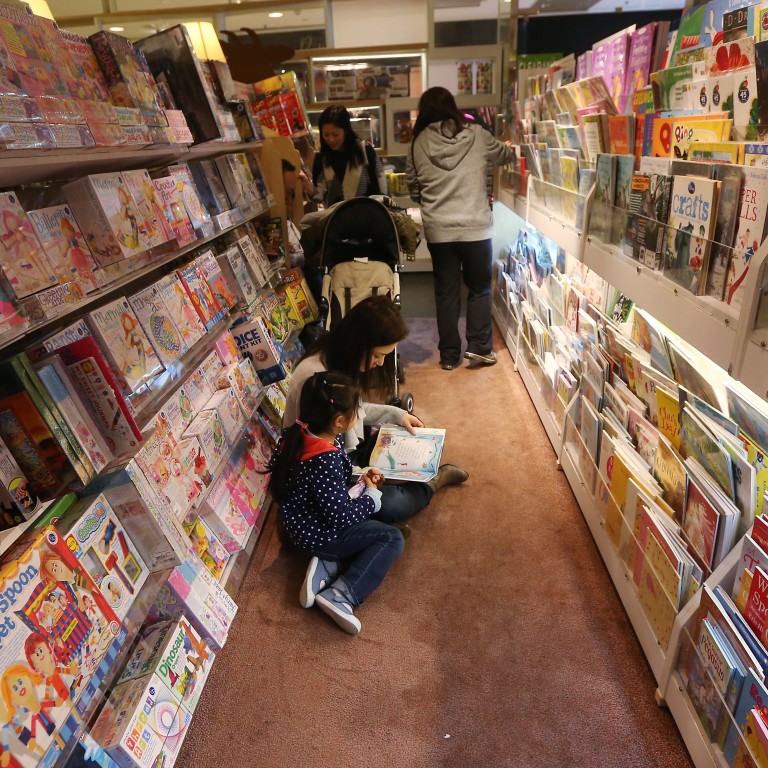
How Zuckerberg rekindled my faith in books
Let me confide a brutal and embarrassing truth. I hate my Kindle, and all the books I devour on it.
I miss my books… the feel of them, the smell of them, the sense of “place” as I work steadily through from back to front – and even the guilty pleasure of writing in the margins.
I have the Kindle first because Economy class baggage allowances and books do not sit easily together: a long trip away, and half my weight allowance is gone on the leaden presence of books. I have the Kindle second, because the world’s media have been harassing me for the past five years that anyone still reading books or print newspapers is a dinosaur in need of urgent extermination.
The recent news that Dymocks is to close down in Hong Kong of course confirms the same Darwinian message – I am soon to be extinct.
So what a shock to learn that Mark Zuckerberg, Facebook founder and ultimate e-geek, has set up a book club, confesses a love of reading books, and promises to post two books a month for his Facebook followers to digest and debate. Sales of his first chosen book – Moises Naim’s The End of Power – have surged, with hard copies of his book sold out in days, and 180,000 Zuckerberg fans signing up to debate the book within a week.
And a further shock to learn that book sales have not collapsed as consultants were predicting until very recently. Consultancy PwC told us just two years ago that e-books would overtake physical books by 2015. Today, Deloitte says printed books still account for 80 per cent of sales by value. The leading UK bookstore Waterstones says sales of real books were up 5 per cent in December. In the US, sales of physical books rose 2.4 per cent last year to 635 million.
I’m confused. Am I really a dinosaur, or is the world really moving with me on this?
Consultancy PwC told us just two years ago that e-books would overtake physical books by 2015. Today, Deloitte says printed books still account for 80 per cent of sales by value
Data from Hong Kong would suggest I am not so extinct after all. Sales of new book titles in 2013 in the city were down 50 per cent from two years earlier to 4,000, but Hong Kong’s 77 libraries remain as busy as ever. Some 11.4 million books were on offer in our libraries at the end of 2014 – up 3 per cent from two years earlier, and book borrowers rose over the same period by 5 per cent to 4.2 million.
A recent survey in Hong Kong says Hong Kong people – who in the 2011 International Reading Literacy Project ranked first out of 45 economies in terms of literacy – on average read one book a month, and 61 per cent prefer to read proper books. Just 7 per cent read only e-books. That is up from 3 per cent four years ago, but these are piddling numbers. These are striking numbers when you note that 87 per cent of Hong Kong people have a smartphone, and 57 per cent have a tablet – providing plenty of opportunity to convert over to e-reading.
So when I try to get my head around the demise of Dymocks, I think there are perhaps other factors at work. Competition is probably fierce. Their market is predominantly English-language books, which account for just a quarter of all book sales in Hong Kong. And then there is the awful pressure of Hong Kong retail rental costs.
By comparison, Commercial Press, which sells mainly Chinese-language books and has had a foothold in Hong Kong for over a century, still boasts rising profits – not the double digit annual growth of the 1980s and 1990s, but a rise nevertheless.
So it seems I may not be quite the dinosaur I feared I had become. Book publishers have got smart by focusing on illustrated editions and cutting prices, and Amazon has failed to excite its potential e-audience with any new Kindle platforms to refresh the e-reading experience.
If Mark Zuckerberg still has space in his life for hard-copy books, then there is surely hope even for dinosaurs like me. After all, he has recently started to learn Mandarin, become vegetarian, writes thank you notes to customers every day, and even wears a tie. Obviously, if I am indeed a dinosaur, then I think I may go extinct in good geekish company.
David Dodwell is the executive director of the Hong Kong-Apec Trade Policy Group

